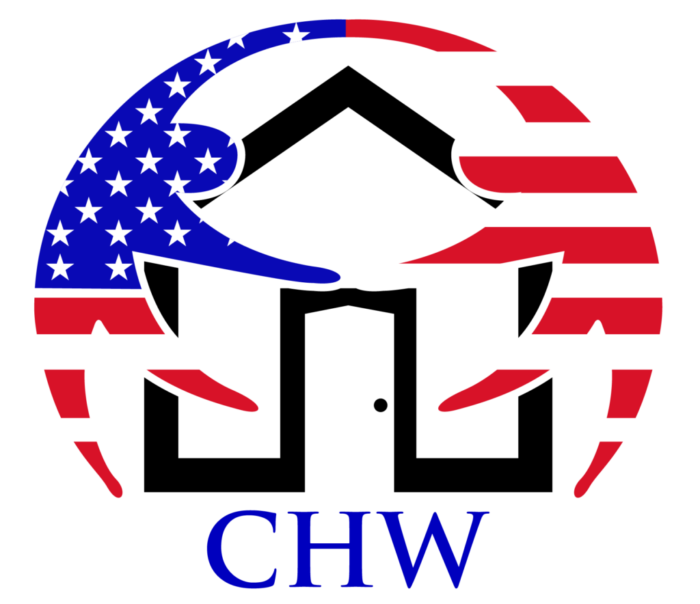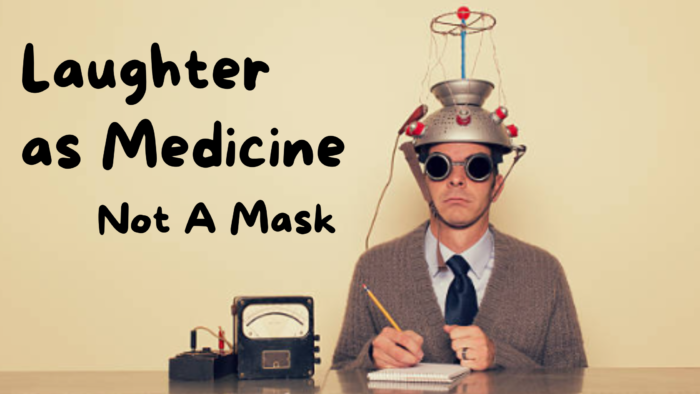By Donna Hoffmeyer
My military friend, and fellow blogger, Travis, and I were discussing kintsugi the other day. The term means golden journey and is the Japanese art of repairing broken pottery. The discussion sparked thoughts for this week’s post. We’ll tie it in later.
When our son was in second grade, we had the annual parent-teacher conference.
Part of the feedback discussed his humor. We were both grinning and proudly told the teacher we have taught the kids humor is a great way to diffuse anger or frustration. The teacher kindly smiled and said “Yes, very true. Timing is also an important part of humor too.”
Parents crushed.
Okay not really, just sounded funny. However, we did laugh after the meeting. “Timing, that’s what we forgot.”
Laughter is the best medicine. We’ve all heard, and probably even said this phrase a time or two. Hell, they even made a movie about it! (There is a real Patch Adams, folks.) But how many of us truly believe in it?
I’ll give you two types of people…military and medical.
Civilians and non-medical folks, I’m going to give you a little knowledge of the inner workings of these two groups. I’m overqualified, as I was a military nurse for 21 blessed years…our humor rivals no other.
You can pick us out in a crowd. We’re the ones who are telling a joke at the most inopportune time. We laugh when others are near tears, in shock, or in disbelief. Not an outward obnoxious laugh; more like a quieter shake-your-head-because-I-can’t-believed-this-happened kind of laugh.
We rib at each other mercilessly — inter-branches, inter-career fields, inter-ranks…it doesn’t matter, we’ll gleefully make fun of each other. Hey, we all love the crayon eaters; want to find the best hotel, ask the Air Force; the Navy will never outlive the Village People; Army grunts — what more can you say; Coast Guard (are they really a branch of service?); and Space Force — sorry, we’re still giggling at the name (but I am curious if they will have to have light saber versus M4 training). However, give us a mission and we’ll come together like alcohol and bad decisions.
Our stories are often things nightmares are made of; stories that civilians look at us incredulously, wondering “how in the world we are still functioning, let alone alive”. Yet our military friends will often respond with, Yeah, but did you die?!
We measure success by life or death. If we didn’t die, then it is not that bad. That is a pretty extreme measurement. When there are enough “not that bad” scenarios we survive, we find ourselves laughing not to cope…but to cover up the pain.
We all know that super funny person. The one that puts a smile on everyone’s face when they are around. How many of us have asked ourselves “Why? What is their story? What has happened to them to try to consistently make people smile?” Funny is now a yellow flag to me…proceed with caution…there is quite possibly more to their story.
Robin Williams is probably the one most people are familiar with…in a jovial funny way. Anthony Bourdain had more dark, sarcastic humor. How many of us were shocked when we heard they committed suicide? I’ll raise my hand.
Where is the line between using laughter to heal versus covering the pain?
I was interviewed by Ryan Strawn and Jason Steifer from the Dysfunctional Veterans podcast…aka call signs Dirty and Stiffy respectively (FYI Dirty is a badass chic, folks). The focus of the podcast is to discuss all things veterans can identify with but in a humorous relatable way. Lots of laughter, lots of jokes (many at their own expense). Ryan and I talked a few times before and after the podcast and she was pretty open about her journey.
“One minute I was the 1%. Female, officer, and Prowler aviator on aircraft carriers. The next minute I am Mom, and selling soap on Etsy.” She mentally crashed after being medically boarded from the Navy. “I went through depression, sadness, confusion, drank a lot, was angry, thought about suicide, all the things. Ryan’s ‘pit of sad’. I hit rock bottom and started to dig.”
Somewhere in there, she stopped digging and found her way up. She felt like she had a claw pull her out, and dropped on the beginning of her recovery journey. Fortunately, after a ton of self-work and healing over the years, she channeled her energy, and now uses her humor to show vulnerability and connect with people through their podcast. Laughter saved her and their work is saving others.
BJ Lange is a medically retired Air Force medic, turned civilian comedian. He truly knows the value of humor to heal, as he is also a 2x cancer survivor. He is an Improv Comedy Resiliency Instructor with the Air Force’s Wounded Warriors and an instructor at The Second City in Hollywood. He finds purpose in teaching other wounded veterans the value of using improv and laughter.
In my experience, comedy often is the device used to loosen up the awkward or uncomfortable. This is why veterans and first responders often say they have a dark sense of humor. With trauma, comedy can help us deal in the moment with stressful situations. However, when applied to learning, comedy can also be a tool to help us grasp life skills and create new pathways for living — such as studying and performing improv comedy. In applied improv, we’re taking games, theory, and exercises and applying them to build on listening, problem-solving, and thinking outside the box.
So, what does laughter and humor have to do with kintsugi?
As I mentioned above, kintsugi is the Japanese art of repairing broken pottery with a mixture of gold, silver, or platinum. A broken bowl is useless. One cannot eat out of it, cannot hold anything in it, cannot use it for storage…so it just sits, with sharp edges, broken. Kintsugi smoothes the edges and brings function back to the pottery. The cracked and broken areas are now elegant demarcations of durability.
Laughter needs to be more like kintsugi. It needs to mold into our fissures and fractures, joining the pieces together to form a whole from parts. It needs to be bold, dazzling, exquisite, magnificent, splendid, sublime, stunning, mesmerizing, fascinating, and wonderful. Itt needs to be seen in a positive light.
It needs to be honored.
We need to use laughter to repair our brokenness, show our vulnerability, strengthen our weak spots, and in turn, make ourselves whole, and even more beautiful. Laughter used to mask only leaves the same sharp, broken pieces everywhere.
Both Ryan and BJ are in the art of making beauty out of brokenness.
For all of you laughing…make sure it is the healing type of laughter; the laughter that brings you together, and shows your mended beauty…your kintsugi; not the laughter that camouflages the seeping wounds.
Find your broken pieces, make your gold mixture, and create something beautiful.


